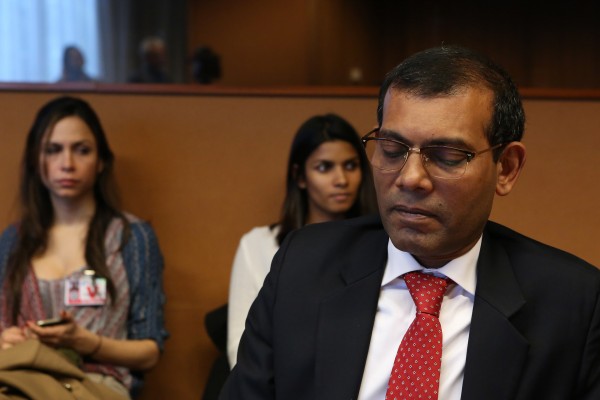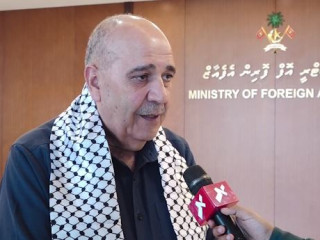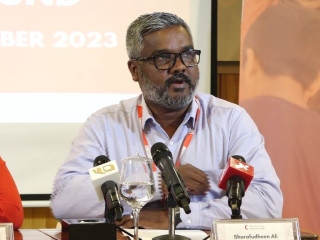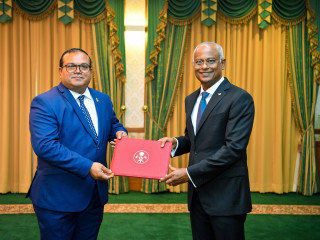“It is possible to topple a dictator, but not very easy to uproot a dictatorship,” says former President Mohamed Nasheed.
The former President made the statement on Tuesday, in his address at the 9th annual Geneva Summit for Human Rights and Democracy; a showcase of international human rights advocates that occurs the day before the United Nations Human Rights Council begins.
“I always say and always still believe that it is possible to topple a dictator, but it is not so easy to uproot a dictatorship. Its tentacles go very deep into society,” said the former President, who received the 2017 Courage Award at the Summit on Tuesday.
READ MORE: Nasheed receives rights award, thanks the people for their support
The leader of the largest opposition party, Maldivian Democratic Party (MDP) was elected the country’s first democratically elected President in 2008, and was overthrown in an alleged coup in February 2012.
“Those favorable for the previous regime fermented a coup, and I was deposed. After that, we started advocating for early, free and fair elections. But the Commonwealth and the United Nations sponsored a Commission of National Inquiry (CoNI) conducted by the coup government and stamped the transfer of power as legitimate,” added Nasheed.
The former President who has been arrested and imprisoned a number of times, also spoke on the time he spent behind bars, for being a journalist.
“I have spent the good half of my adult life in prison. I lost my youth to chains, to incarcerations, to banishment, to torture, to abuse. I started my adult life as a journalist, that was in 1989,” he said.
Recalling the night that he was first arrested, Nasheed said 270 journalists were arrested that day, adding that he was “held in solitary confinement for 18 months,” and that he was “beaten, spat on, urinated upon, kept in stocks, held in chains and brutalized.”
Nasheed said that was the start of a routine, where he would write, get arrested, released and that he would continue write again.
“But with every new article, even when it was on the environment, I would be arrested,” the former President said.
While Nasheed opted not to reveal the details of the torture he had faced over the years, he emphasized that “torture is not simply for information,” in such regimes.
“In totalitarian regimes, in dictatorships, torture is not simply for information. It’s about capitulation. Clever dictators suck you up, they suck the life out of you, they consume your humanity,” he added.
The former President, who in his address at the opening of the Summit on Monday, said that a number of the world leaders who are to gather for the UN Human Rights Council “are thugs, thieves and murderers,” and called upon all to work together to subvert these regimes.
“I would call upon everyone here today to work together to subvert the regimes in so many of these countries. Let’s bring down these governments, we can build economic, social and political structure to subvert and destabilize these regimes,” said Nasheed.
Nasheed, who has on various occasions, claimed that he will return to the Maldives, reiterated his intention to return to the Maldives, despite the 13-year jail sentence on terror charges. He was sentenced on March 13, 2015.
“I will go back to the Maldives again. I will go back to jail again. . . I have decided never ever ever to give up and we will continue this fight," the former President said.
READ MORE: Nasheed reiterates that he will return to Maldives even to go "back to jail"





